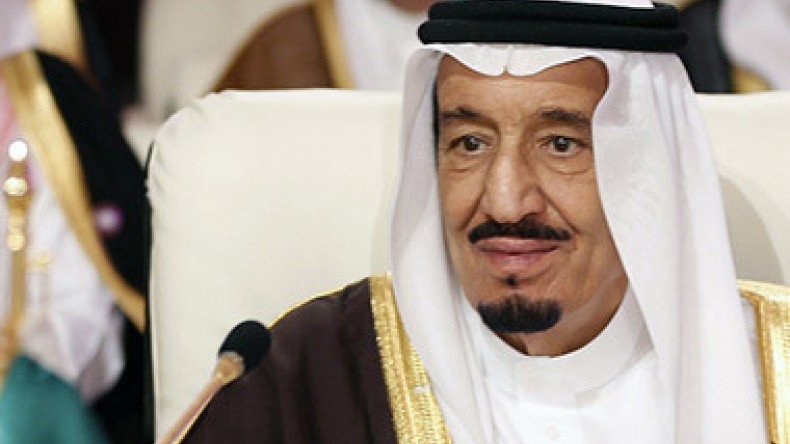
New conservative Saudi King unlikely to change policies, Gulf experts claim
The death of Saudi Arabia’s King Abdullah bin Abdulaziz Al Saud is unlikely to affect the country’s political course or have any major impact on oil prices, as the new and no less conservative leader is set to maintain existing policies, Gulf experts interviewed by Sputnik said.
“I don’t think that the death of the king will change anything concerning Saudi Arabia’s internal and international affairs. Knowing that this would happen, they previously reached an agreement to choose an 80-year-old king who would continue the policies of his predecessor,” Lebanese Gulf affairs expert Wafeeq Ibrahim told Sputnik Friday.
According to the expert, the country’s new king, Salman bin Abdulaziz Al Saud, is even more “traditional” than the previous ruler, who died at the age of 90 early on Friday.
“It should be mentioned that they all, actually, are very conservative, they lack the spirit of modernism,” Ibrahim said, explaining that the Saudi leadership is skeptical of new technologies.
Despite calling on Sheikhs to reduce religious extremism and be more tolerant of other religions, the Saudi regime can hardly be described as democratic, and even these directives were “definitely” given after US impetus.
“Dictatorship prevails in many fields, economic and social life,” Ibrahim stressed.
Addressing the issue of US military bases in Saudi Arabia, the expert stated that “Saudi Arabia doesn’t play a role in the region but a ‘function’ in favor of the United States and western countries”. Meanwhile, radical groups like the Islamic State (IS) and the al-Nusra Front continue to threaten the royal regime's security.
“No doubt they felt threatened. Saudi Arabia is surrounded by ‘unstable’ countries like Iraq, Syria, Bahrain, and Iran, which threatens [its] security. Not to forget that what is happening is a part of the US policy. Saudi Arabia will keep pursuing the same ‘negative policy’ in Yemen and Iraq,” Ibrahim told Sputnik.
Director of Cairo-based investment firm Multiples Group, Omar El-Shenety, agreed that both national and international impact from the power change will be minimal.
“The news about the death of the king was expected. Therefore, it will not provoke a state of shock on the oil markets or falls on the stock exchanges in Arab countries… The economic consequences associated with the death of the king will be very minimal,” El-Shenety told Sputnik Friday.
Despite a jump in oil prices after the king's passing, the main factors that affect oil prices will remain, the expert added, saying that "the current development will continue until the next OPEC meeting”, scheduled for June 5.
Oil prices have been plummeting since the summer of 2014 due to oversupply in the market. In November, the Organization of the Petroleum Exporting Countries (OPEC), which comprises 12 states, including Saudi Arabia, decided against decreasing production.
El-Shenety believes there is a possibility that oil prices could fall even further.
“According to sources in the United Arab Emirates familiar with the situation, the UAE would stay afloat even if the price per barrel dropped to $40. At the same time, according to Saudi sources, the kingdom will be able to keep the situation under control at an oil price of less than $30 for eight years,” the expert told Sputnik.
Addressing an expected decrease in Saudi investment in Egypt, El-Shenety stressed that this is “not due to the death of the king, the reason for this is the collapse in oil prices, which has created a budget deficit in Saudi Arabia.”
King Abdullah of Saudi Arabia ruled the country for 10 years, having succeeded long-time leader Fahd bin Abdulaziz Al Saud after his death in 2005.
Abdullah Bin Abdulaziz Al Saud died on Friday after spending several weeks in hospital with a lung infection. Saudi Crown Prince Salman bin Abdulaziz Saud was named the new Saudi king following his half-brother's death.
Saudi Arabia is one of the world’s few remaining absolute monarchies.
Newsfeed
Videos






























